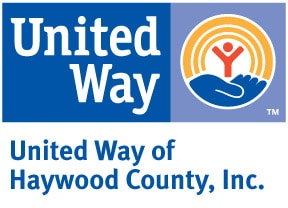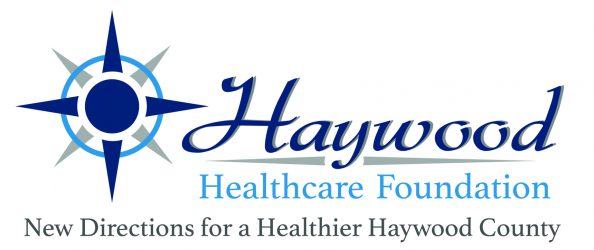- 828.246.0332
- Admin Hours: Mon - Fri: 10:00am - 4:00pm
Article written by Vicki Hyatt
Despite the uncertainties accompanying the COVID-19 pandemic, Haywood Pathways Center, the county’s homeless shelter, has had a remarkably successful year.
Mandy Haithcox, the center’s director, said the dire need within the community remained steady, as did the center’s commitment to meeting the needs in the best way possible.
“We started 2020 with grand plans, but by the time we got to March, the reality of COVID hit us and things took a turn,” she wrote in a letter to supporters. “We gradually decreased our shelter capacity by a third, rearranged our dorms, adjusted our community dinner meal distribution to be to-go meals and temporarily reduced the number of staff on campus.”
Still, the center served 202 individuals in 2020 — 145 men and women, 21 moms and 36 children. Of the number, 55 individuals and families transitioned into housing, while 61 individuals and six families were reunited with or moved back in with family.
This was about 60% of the number of individuals who were helped in 2019, Haithcox said.
Of the 2020 adult residents who were still at the center at the year’s end, 70% had a stable monthly income and 55 had full-time jobs, she added.
Haithcox fears that when the eviction moratorium ends, the center will see an increase in people who need shelter — an increase that will be more than the center can handle.
“We get calls daily from people in the process of being evicted or planning for it when the moratorium ends,” she said. “We’re looking at options right now, but we only have space for who we have space for.”
Many working to find housing for those individuals in the community agree that it will be far better to keep families in the housing they are in than having to address issues related to starting all over, Haithcox said. Many are working toward that end.
For most of 2020, Haywood Pathways Center enforced strict rules regarding mask-wearing, social distancing and extra cleanliness steps.
Staffing levels dropped from 17 to 10 by June, which included the employees working as jail counselors. Only two staff members were on campus taking turns to provide around-the-clock coverage. Others on staff worked remotely or stopped by several days a week, she said.
“We’re very proud of all our staff,” Haithcox said. “Residents have put up with a lot, wearing masks all the time except when on their bunk, eating or showering. We limited the number of times people could leave campus to limit community exposure. Essential employees working in fast food or grocery stores had to wash their clothes and take a shower upon returning. We took temperatures twice a day for everybody and supplied all with masks and hand sanitizer.
This winter when temperatures dipped below freezing, offering “cold grace” for nonresidents was challenging, Haithcox admitted.
“We had to reduce our capacity from 12 to five, and it required a lot of thought,” she said. “The entire dining hall closed at 8:30 p.m., and the only place those staying during cold grace could do was in a taped off area in the dining room or the bathroom.”
Even with the reduced capacity, nobody was turned away who needed shelter during the extreme cold weather, thanks to partnerships formed with churches and other nonprofits.
“We only had one family affected by COVID, and it didn’t spread to anyone else,” she said.
While church contributions were down significantly in 2020 — from $124,000 last year to $83,000 this year, it is in keeping with the the trend noticed by all nonprofits. Haithcox attributed it to the fact that churches haven’t been able to meet in person for much of the year.
However, individual contributions increased, as did grant funding. That, along with the forgivable PPP loan helped keep the Pathways Center operational, Haithcox said.
Haywood Pathways Center will be working with community partners to focus efforts on homelessness prevention, and leaders are hoping the social enterprise started last year, the Holy Cow food truck, will continue serving as an employment training and resume-building enterprise.
“This is more than just a food truck. Ideally, we would make a profit, but for 2021, we would be thrilled just to break even,” she said, adding the goal is to generate between $50,000 and $75,000 through the business.
Haywood Pathways Center has zero debt, and its Empty Bowl fundraiser that recently wrapped up, generated $13,000, about the same it would have when it wasn’t a drive-through event.
The board has unanimously voted to allow families and single men to live with their children at the Myr-Ken dormitory, which was originally for mothers and children only, and there is recent news that a grant will fund a licensed clinical social worker to serve in the jail, along with the two social workers employed through the Pathways Center.
“Through the jail program, 99% of the 238 they worked with, 99% exited from jail and were connected to recovery supports, including discharge into treatment programs,” she said.
Another step that will help those introduce stability into the lives of those going through the HPC program will be the addition of a jobs counselor who will help residents find employment best suited to their skills.
Thanks to a food partnership with Publix and MANNA Food Bank, costs to feed both Pathways Center residents and the community members who pick up to-go meals is just $2,000 a year or so, Haithcox said.
Beginning in April, the vision is to resume having cook teams on campus where residents can interact with community members.
Sharing is Caring!
Mandy Haithcox,
Executive Director
179 Hemlock Street
Waynesville NC 28786
mandy@haywoodpathways.org
828-246-0332

